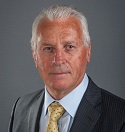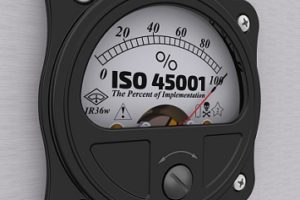The World Economic Forum meeting, which recently took place at Davos, is set against a backdrop of a changing world of trade and development. Who will emerge as winners and losers over the next 3 to 5 years? Because of innovative technological developments, a 10-year projection is no longer a valid timeline.
Old trading blocks are dissolving, regressive bureaucratic regimes are trying to fight a rear guard action, but the future must always be where like-minded economies group together, based on shared values, to provide for their internal markets and create accelerated growth. The dividends and benefits of that growth can no longer be purloined by global organizations, which require national governments to underwrite them through low-cost employment policies. Exploitation and exported poverty are not moral or ethical business values; these have formed the worst expressions of globalization in the past.
So, what of the future? Theresa May, the U.K. prime minister, speaking recently at Davos, said, “We have to do more to help our people in the global changing economy … the test of leadership is what actions we take”. Maybe there will be a reduction in globalized outsourcing to low-cost abusive locations, which is surely a good thing.
Those countries that have national standards’ bodies that have supported and contributed to the formulation of International Organization for Standardization (ISO) 45001 have made a moral and practical stand for the rights and protections of workers and the responsibilities of organizations and leadership.
The United States, Canada, and Britain have a common language, cultural norms, and a shared history both in times of prosperity and adversity. U.S. Treasury Secretary Steven Mnuchin made it clear the U.K. would be “at the front of the line” with trade negotiations when the U.K. exits from the European Union (EU). He is reaffirming the tie of the historical, political, and trading relationships between our countries. Canada has negotiated a deal with the EU, but that does not block or hinder trade between them and the U.K. Since all these three national standards’ bodies agree with the terms and requirements of ISO 45001, this now sets a level playing field for all organizations within these economies to embrace new standards and norms, which will be for the greater benefit to organizations, economies, and workers.
This is merely an example of how regionalization versus globalization can be a force for good. However, it does not exclude the likelihood or possibility of multifaceted interorganizational cooperation on a global scale, but the proviso is the common denomination of the values enshrined in ISO 45001.
 Chris J Ward, CMIOSH, is an ISO 45001 specialist and an author and lead auditor for OHSAS 18001. He was a principal inspector with U.K.’s Health and Safety Executive (HSE) for 36 years and has experience with a wide range of manufacturing and service sectors. Chris is the author of HSE’s audit tool for inspection of health and safety management used by HSE and local authority inspectors in the U.K. He continues to investigate fatal accidents around the world in the heavy manufacturing and construction sectors. Chris can be reached at chrisjward@iso45001assessment.com. Chris J Ward, CMIOSH, is an ISO 45001 specialist and an author and lead auditor for OHSAS 18001. He was a principal inspector with U.K.’s Health and Safety Executive (HSE) for 36 years and has experience with a wide range of manufacturing and service sectors. Chris is the author of HSE’s audit tool for inspection of health and safety management used by HSE and local authority inspectors in the U.K. He continues to investigate fatal accidents around the world in the heavy manufacturing and construction sectors. Chris can be reached at chrisjward@iso45001assessment.com. |

